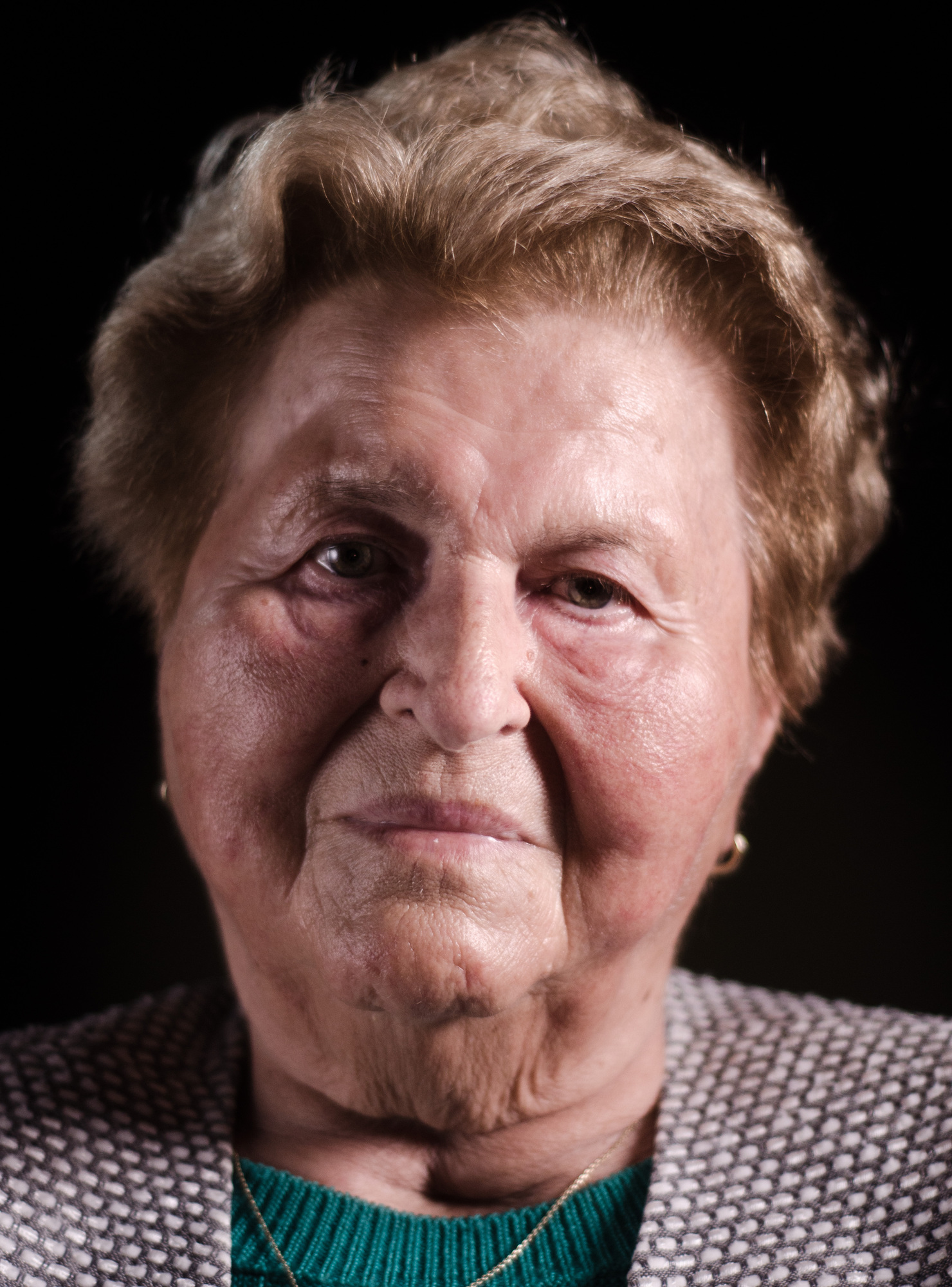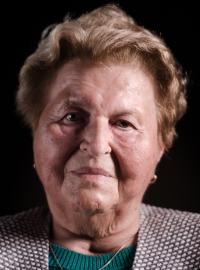“My name is Kateřina Schopfová, I was born in Nový Přerov, and I also went to school and to church there. My parents were farmers, peasants. In 1945 the front stopped in our village. The Germans were on a hill on the left, and the Russians were on a hill on the right, in Austria. The Russians were shooting at our village. Our house was the first one to burn down. It was new house. It was built in 1938 and it burnt down in 1945. Where were we to stay? Daddy had had to join the army, but he returned home right after the war ended. We had a barn, and inside there was a pantry for storing rye and wheat. So we took all the things out of there and began living in that pantry. It was five by four square metres. That’s where we lived. Then an order came that we all had to move. At that time, daddy and grandpa, my mother’s father, were still with us. Grandpa had however died before they moved us out. Dad then said that this couldn’t be, that they couldn’t just take everything from us and move us away. He owned two hectares of fields in Austria and he therefore went to a farm in Starý Přerov. Dad was already on that farm when they came for us. They made my mom and me get on a truck which took us to the train for Novosedly. We had to get into cattle trucks and we rode to Troubelice, which is all the way beyond Olomouc, to one farmer’s place. A local policeman then came, warning us that since we had no citizenship, we were to go to Mikulov to get one. That if we didn’t have it, somebody might come and take us away, and he wouldn’t be able to do anything, because we had no nationality. I had no nationality, my mom did, but since I was too young, I was somehow registered under her name or what not. Dad didn’t have any citizenship, either. Dad had joined the army and that’s why later his property was confiscated. But why? He hadn’t done anything, he only joined the army. He had to. If he hadn’t complied, they would have shot him. So they took us to Troubelice, and then we were to go to Mikulov to get the citizenship, but we didn’t even go there, because we went straight home to Přerov. Grandma said: ´Come, daddy is already waiting for you on the field behind the borderline.´ Thus we went, I wanted to run, because I saw two policemen walking by. But they thought that we belonged there, since daddy was already there. These men were good policemen, the old ones. They knew us.”

